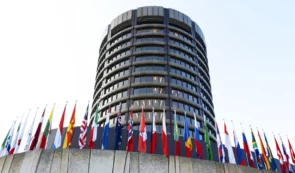India Subjects Crypto Transactions to Anti-Money Laundering Standards

The Indian government has recently notified interested parties that they must comply with the national anti-money laundering (AML) law when conducting cryptocurrency transactions.
The Gazette of India published the notification on March 7, stating that transactions such as exchange, transfers, safekeeping, and administration of virtual assets, as well as financial services related to an issuer’s offer and sale of virtual assets, are now subject to the Prevention of Money-Laundering Act (PMLA) 2002.
All crypto businesses in the country would come under ambit of PMLA
This is a good step towards regulating the crypto industry in India
This also ensures all crypto businesses must perform necessary KYC, transaction monitoring etc as part of their process.
Good progress ✌️ pic.twitter.com/lVhs5LWG4I
— Nischal (Shardeum) 🔼 (@NischalShetty) March 8, 2023
The PMLA Act requires financial institutions to maintain a record of all transactions for the last ten years, verify the identity of all clients, and provide officials with access to these records if demanded. While such regulations are not new in the crypto industry, the Indian government’s move will undoubtedly complicate the lives of crypto companies operating within India. Moreover, the amended tax rules introduced in March 2022, subjecting digital assets holdings and transfers to a 30% tax, further disrupted the industry’s operations in India.
As a result, major cryptocurrency exchanges across India experienced a 70% drop in trading volume within ten days of the new tax policy, followed by a further 90% in the next three months. This rigid tax policy prompted crypto traders to move to offshore exchanges and forced budding crypto projects to relocate outside India.
READ MORE: Ethereum: Vitalik Buterin Calls for Simpler Interfaces to Improve UX and Adoption
In February 2023, Indian authorities demonstrated their firm stance on cryptocurrencies by preemptively banning crypto advertising and sponsorships in the local women’s cricket league, following a previous ban on the men’s cricket Premier League introduced in 2022.
The Indian government’s ongoing efforts to regulate the crypto industry align with the global trend of tightening AML standards in the industry. Notably, while celebrating India’s first presidency at G20, the country’s Finance Minister, Nirmala Sitharaman, urged international efforts to regulate crypto. Sitharaman called for a coordinated effort “for building and understanding the macro-financial implications,” which could be used to reform crypto regulation worldwide.














